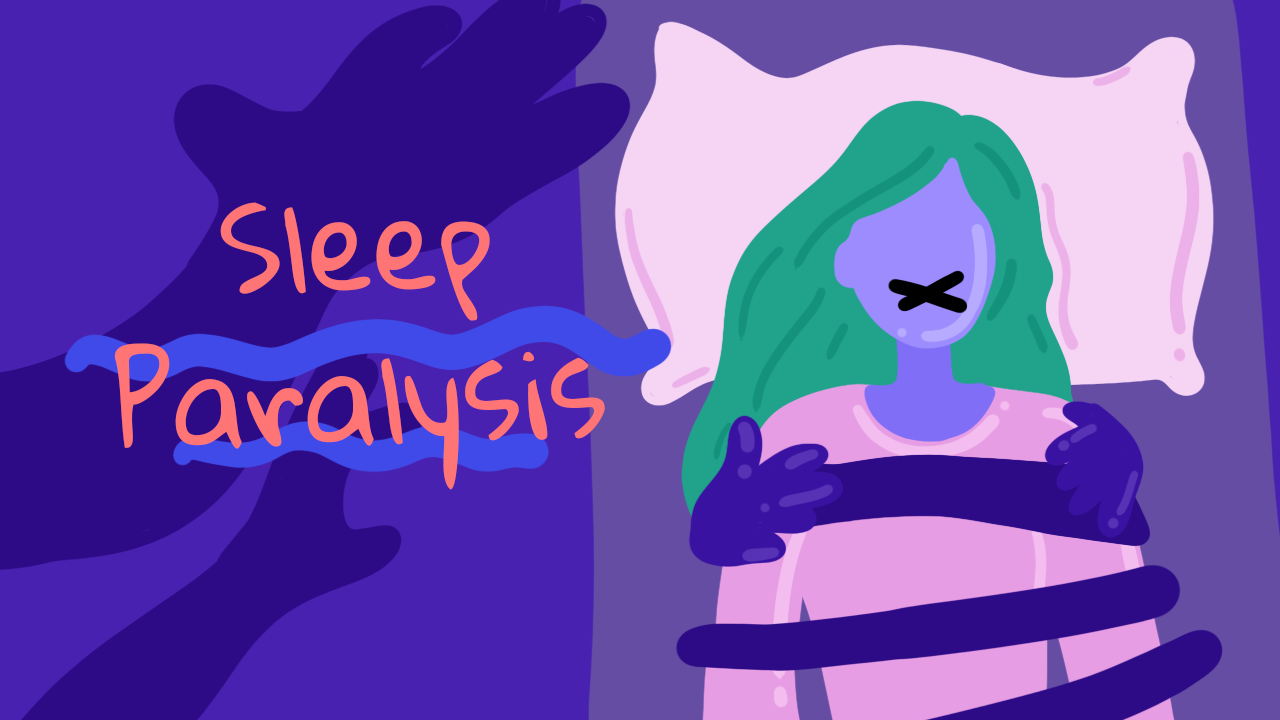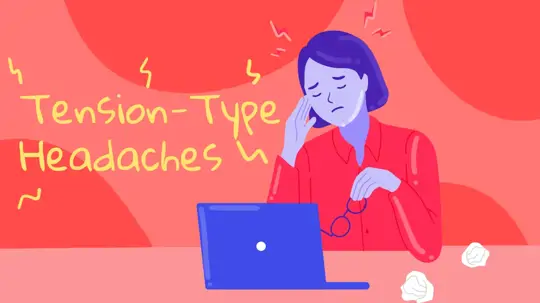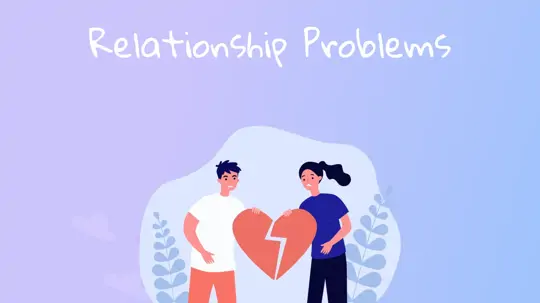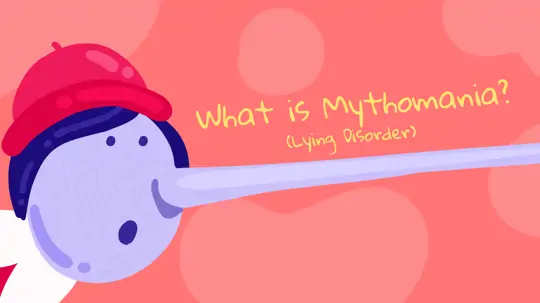
Start feeling better today!
Connect with your therapist today and take control of your life like our 850.000 happy clients.
Get StartedHave you ever woken up and felt unable to move, open your eyes, or even feel as if you were under pressure? If you answered yes, you may have also had sleep paralysis. Let's find out what sleep paralysis is and how to overcome it in this article!
What is Sleep Paralysis?
Sleep paralysis is the temporary inability of the body to move while conscious during sleep, as well as the night terrors that this causes. Although the person's senses and perception are intact during sleep paralysis, he is temporarily paralyzed. Although sleep paralysis can cause intense panic, it usually passes in a matter of seconds or minutes.
People who experience atony (loss of muscle tension1) describe it as sleep paralysis. Although this situation is generally considered harmless, it is a very frightening experience for the person living it.
What Causes Sleep Paralysis?
What causes sleep paralysis is one of the most puzzling aspects of the condition. To understand why sleep paralysis occurs, we must first examine the changes that occur in our bodies while we sleep.
In normal sleep, our muscles paralyze during the dream phase, causing us to be unable to move our bodies during this phase of sleep. This paralysis has a very valid reason: it prevents us from actually doing the things we do in our dreams.
Most of us have seen someone jump or fall from a great height while dreaming at some point in our lives. We might as well jump out of bed while sleeping if our bodies were not temporarily or permanently paralyzed during the dreaming phase of sleep. In other words, the muscle paralysis we experience in our dreams is a function of our bodies designed to protect us from injury.

In the case of sleep paralysis, the physiological paralysis that the person experiences during the dream phase continues shortly after waking up2. The person in this situation is unable to speak, despite his desire to do so, and is unable to move, despite his desire to act. This is one of the most unpleasant sleeping situations.
The awakening of a sleeping person's consciousness before the muscles cause sleep paralysis. In other words, sleep paralysis occurs when our muscles wake up later than our mind or consciousness.
Factors Causing Sleep Paralysis
- Disruptions in sleep patterns
- The tendency to sleep excessively during the daytime (Narcolepsy)
- Mood disorders such as depression triggering sleep disorders
- Sleeping right after eating
- Extreme stress
- Working in shifts
- Sudden unexpected change of environment or lifestyle
- Artificial sleep aids—medicine taken without a doctor's advice
- Sleeping while very hungry
- Excessive use of alcohol or cigarettes
- Going back to sleep after waking up
- Sleeping on your back
Sometimes hallucinations occur along with this sleep paralysis. In some cases, these hallucinations and delusions may be perceived as a dream; in others, something is happening in the room, and the person suffering from sleep paralysis may be unable to intervene, making the experience more frightening3. So who gets sleep paralysis?
Who Gets Sleep Paralysis?
Sleep paralysis is especially common in people whose sleep patterns are disrupted. People who work under extreme stress, shift workers such as aviation or security personnel, those who use substances such as alcohol that disrupt sleep patterns, and those who sleep excessively during the day are at a high risk of sleep paralysis due to these disruptions in sleep. Aside from these, a variety of other factors can cause sleep paralysis.
This issue is not limited to people who suffer from sleep disorders. Isolated sleep paralysis refers to sleep paralysis that occurs in the absence of another sleep problem. So, when does sleep paralysis begin to take effect?
When Does Sleep Paralysis Start to Happen?
Sleep paralysis first appears during adolescence. It has been discovered that sleep paralysis strikes 14-17-year-olds for the first time. According to studies, 40% of people will experience sleep paralysis at some point in their lives. Sleep paralysis, which appears for the first time in adolescence, peaks in young adulthood (their 20s and 30s)4.
What are the Symptoms of Sleep Paralysis?
The symptoms of sleep paralysis are quite distinctive, and almost everyone experiences them. Knowing the symptoms of sleep paralysis can help alleviate anxiety and panic.
- Feeling like being pushed down, being pressed
- Feeling as if there is an entity in the room while asleep
- Extreme fear and panic
- Having hallucinations during or just after sleep
- Experiencing shortness of breath
- Feeling pressure on the rib cage
- Feeling like dying
- Excessive sweating

During sleep paralysis, emotions run high. Sounds and sensations that are normally overlooked or unnoticed can be exaggerated and frightening. To recover from sleep paralysis, the individual may need to move or have someone else wake them up3, 4.
It should be noted, however, that sleep paralysis is not a condition that requires immediate treatment. Although uncommon, hallucinations may persist for a short period of time after waking up. This situation is also regarded as innocuous.
Is Sleep Paralysis Dangerous?
As previously stated, when experiencing sleeping paralysis, feelings such as fear and even fear of death may be experienced. Sleep paralysis has traditionally been associated with evil and demonic spirits. As a result, many people wonder whether sleep paralysis is dangerous or even fatal.
For most people, sleep paralysis is not a serious issue. It can cause psychological problems if it is repeated too frequently, depending on the person's constant fear and anxiety. However, it cannot be called a dangerous or fatal problem5. So how is sleep paralysis treated?
How Do I Overcome Sleep Paralysis?
In addition to medical treatment methods for sleep paralysis, it may be beneficial for people to receive psychological support in order to protect themselves from the negative psychological effects of this condition and to follow the recommendations below to support their psychological well-being.
- Getting 6-8 hours of sleep every night to establish a regular sleep routine
- Starting therapy for other psychological problems that may contribute to sleep paralysis
- Staying away from alcohol and substance use
- Adopting sleep hygiene practices
- Seeing a doctor for screening for sleep disorders
It is necessary to eliminate the factors that cause sleep paralysis in order to overcome it. A different type of sleep disorder or a psychiatric condition may be the cause in some cases. Other health problems can result from engaging in habits and behaviors that reduce sleep quality. A healthy and rested mind and body require adequate sleep.
Meditation and Relaxation Therapy for Sleep Paralysis
Developed by neurologists from Cambridge University as a direct intervention for sleep paralysis,6 Meditation-Relaxation Therapy follows a 4-step program to reduce the experience of sleep paralysis.
- Re-evaluation of the event: The person re-evaluates that the situation they are in is not life-threatening and avoids panic.
- Emotional regulation: Recognizing that if the person overestimates the situation and gets more anious or afraid, it will worsen sleep paralysis and cause it to persist, rather than resolving it.
- Attention meditation: Focusing attention on an inner feeling.
- Loosening the muscles: Relaxing the muscles of the person and doing breathing exercises help get rid of sleep paralysis.
Sources
- Sharpless, BA (2016). "A clinician's guide to recurrent isolated sleep paralysis". Neuropsychiatric Disease and Treatment. 12: 1761-67. doi:10.2147/NDT.S100307
- Baris Unver. "sleep paralysis, aka "Sleep Paralysis"". Archived from the original on 4 June 2016. Accessed on April 10, 2012.
- Baland Jalal, Joseph Simons-Rudolph and Bamo Jalal (2013). Explanations of sleep paralysis among Egyptian college students and the general population in Egypt and Denmark Transcultural Psychiatry, pp. 158–175, DOI:10.1177/1363461513503378
- Conesa, J. (2000). Geomagnetic, cross-cultural and occupational faces of sleep paralysis: An ecological perspective. Sleep and Hypnosis, 2, (3), 105-111.
- Jalal, B. & Hinton, D. E. (2015). Sleep paralysis among Egyptian college students: Association with anxiety symptoms (PTSD, trait anxiety, pathological worry). The Journal of Nervous and Mental Disease, 203(11), 871-875.
- Jalal, B. (2016). How to Make the Ghosts in my Bedroom Disappear? Focused-Attention Meditation Combined with Muscle Relaxation (MR Therapy)—A Direct Treatment Intervention for Sleep Paralysis. Frontiers in Psychology. https://doi.org/10.3389/fpsyg.2016.00028





